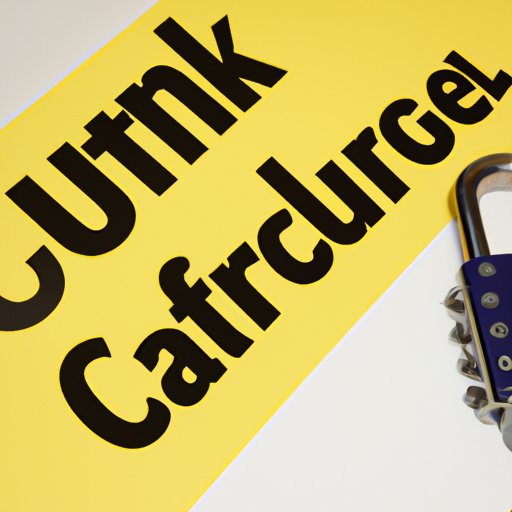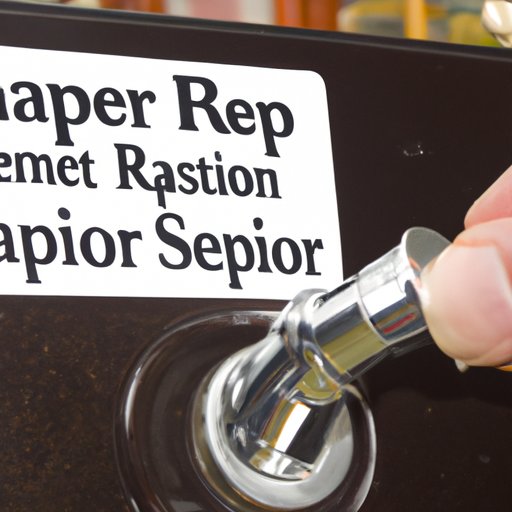Introduction
Are you interested in becoming a landlord and investing in rental property? If so, understanding how to finance your first rental property is essential. Financing a rental property can be a complex process, but with the right knowledge and resources, it doesn’t have to be overwhelming. This article will provide a comprehensive overview of the different ways to finance your first rental property.
Save for a Down Payment
Having a significant down payment when purchasing a rental property has many advantages. For one, having a large down payment can help you secure a better interest rate on your loan. It can also reduce the amount of money you need to borrow, which can result in lower monthly payments. Additionally, having a larger down payment can increase your chances of being approved for a loan.
If you are serious about buying a rental property, start saving as soon as possible. Here are some tips to help you save for a down payment:
- Set a savings goal and create a budget
- Cut back on unnecessary expenses
- Make extra money through side hustles or freelance work
- Open a high-interest savings account
- Take advantage of employer-sponsored retirement plans

Secure Financing from a Bank or Credit Union
When you’re ready to buy a rental property, you may want to consider obtaining a loan from a bank or credit union. These types of loans typically offer competitive interest rates and terms. To qualify for a loan, you’ll need to have good credit and a steady income. You may also need to provide additional documentation, such as tax returns, bank statements, and proof of income.
The main advantage of obtaining a loan from a bank or credit union is that you can get a competitive interest rate, which can help you save money over the life of the loan. Additionally, these types of loans tend to have longer repayment periods than other financing options, which can make them more affordable.
Consider an FHA Loan
If you don’t qualify for a loan from a bank or credit union, you may want to consider an FHA loan. FHA loans are insured by the Federal Housing Administration, which means that the government guarantees the loan. That makes them attractive to lenders, who are willing to offer lower interest rates and more flexible terms than they would with other types of loans.
To qualify for an FHA loan, you must have a minimum credit score of 580 and a debt-to-income ratio of no more than 43%. Additionally, you must be able to make a 3.5% down payment. The main advantage of an FHA loan is that it can help you purchase a rental property with minimal down payment, which can make it easier to get started.
Look for Government Programs
In addition to traditional financing options, there are several government programs that can help you finance your first rental property. These programs are typically designed to help low-income individuals and families access affordable housing. Examples of government programs include the Low Income Housing Tax Credit (LIHTC), Section 8 Housing Choice Vouchers, and HOME Investment Partnerships Program.
The main benefit of government programs is that they can help you access affordable housing. Additionally, these programs often provide additional assistance, such as grants and loans, which can help you cover the cost of purchasing and maintaining a rental property.

Utilize a Home Equity Line of Credit
Another option for financing your first rental property is a home equity line of credit (HELOC). A HELOC allows you to borrow against the equity in your home. This type of loan typically offers lower interest rates than other types of loans, making them attractive to borrowers. To qualify for a HELOC, you’ll need to have at least 20% equity in your home.
The main advantage of a HELOC is that it can provide you with a source of funds for your rental property without requiring you to take out a second mortgage. Additionally, the interest you pay on a HELOC is usually tax-deductible, which can help you save money.
Partner with an Investor
If you’re having difficulty finding financing for your first rental property, you may want to consider partnering with an investor. An investor can provide you with the capital you need to purchase a rental property, as well as advice and guidance throughout the process. Additionally, investors can help you manage your rental property, which can be especially useful for inexperienced landlords.
Finding an investor can be challenging, but there are several strategies you can use. Networking with other real estate professionals is one way to find potential investors. You can also search online for real estate investment groups or look for investors in your local area.

Tap into Your Retirement Savings
If you’re struggling to find financing for your first rental property, you may want to consider tapping into your retirement savings. Depending on your situation, you may be able to withdraw funds from your 401(k) or IRA to use as a down payment. However, you should be aware that there are certain restrictions and penalties associated with withdrawing funds from your retirement account.
The main advantage of using retirement funds to finance your rental property is that you don’t have to worry about qualifying for a loan or finding an investor. Additionally, the funds you withdraw are typically tax-deferred, which can help you save money in the long run.
Conclusion
Financing your first rental property can seem like a daunting task, but with the right knowledge and resources, it doesn’t have to be overwhelming. This article has provided a comprehensive overview of the different ways to finance your first rental property, such as saving for a down payment, securing a bank loan, utilizing an FHA loan, looking for government programs, partnering with an investor, and tapping into your retirement savings. With the right approach, you can be well on your way to becoming a successful landlord.
Final Thoughts
Financing a rental property can be a complex process, but with the right knowledge and resources, it doesn’t have to be overwhelming. By taking the time to explore the different options available to you, you can find the best solution for your needs.
(Note: Is this article not meeting your expectations? Do you have knowledge or insights to share? Unlock new opportunities and expand your reach by joining our authors team. Click Registration to join us and share your expertise with our readers.)
